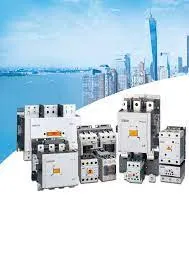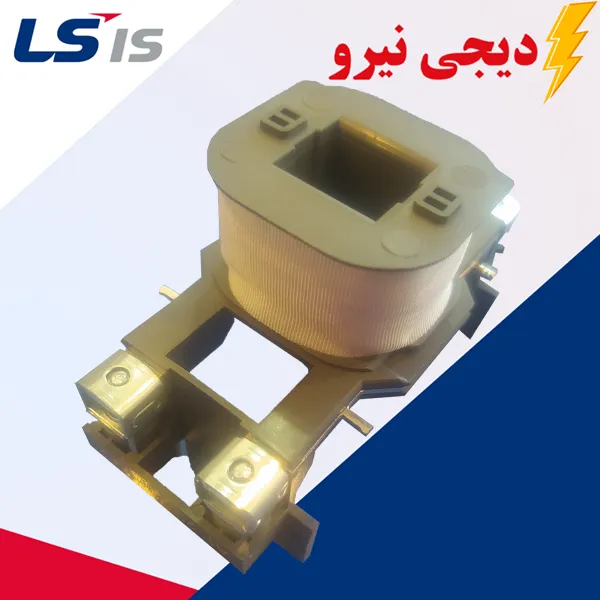About LS Contactor

1. What is a Contactor?
A LS Contactor is an electrically controlled switch used to control electrical circuits, primarily in industrial and residential applications. Unlike a standard relay, contactors are designed to handle larger currents and voltages. They are essential in switching large electrical loads on and off in a safe and controlled manner.

LS ELECTRIC’s contactors are designed to provide high-performance, long-lasting, and efficient control for industrial power systems. They can handle high currents (up to 400A and more) and provide features like multiple auxiliary contacts, arc suppression, and low power consumption for their coil.
2. LS ELECTRIC’s Contactors: Product Range
LS ELECTRIC offers a wide variety of contactors suitable for different industrial applications. Some popular product ranges include:
- LS-K Series: This series includes contactors with a current rating between 22A to 400A. They are ideal for controlling motors, lighting, and heating elements in industrial and commercial sectors.
- MC Series: This is a more advanced series designed for heavy-duty applications, with higher current ratings and features like vacuum switching and enhanced breaking capacity for switching high-power circuits.
These contactors are engineered with high-quality materials and advanced manufacturing techniques, ensuring they perform reliably in demanding environments.
3. Key Technical Specifications
When selecting a contactor, there are several key specifications to keep in mind to ensure it is suitable for your needs:
– Rated Current:
The rated current is the maximum amount of current the contactor can handle continuously. For example, LS ELECTRIC’s contactors with ratings from 22A to 400A are designed for medium to high-current applications, ensuring they can withstand continuous operation in industrial systems.

– Coil Voltage:
The coil voltage determines the voltage required to operate the contactor’s electromagnet. For LS ELECTRIC’s products, the coil voltage ranges from 100V to 240V (AC or DC), offering versatility in different electrical setups.
– Breaking Capacity:
This refers to the maximum fault current the contactor can interrupt without being damaged. It is a critical factor to ensure that the contactor will safely disconnect the load during short circuits or other faults.
– Auxiliary Contacts:
These are additional contacts used to signal the status of the contactor (e.g., open or closed). LS ELECTRIC contactors often feature auxiliary contacts (NO and NC), providing operators with crucial feedback for circuit monitoring.
4. Applications of LS ELECTRIC Contactors
LS ELECTRIC contactors are used in a wide variety of industries, including:
- Motor Control: Most commonly, contactors are used in motor control circuits to switch electric motors on and off. Whether for industrial machinery, HVAC systems, or water pumps, these contactors provide efficient and reliable control.
- Lighting Control: Contactors can control large lighting systems, such as those found in commercial buildings or street lighting. By switching circuits on or off at specific times, they ensure energy efficiency.
- Heating Systems: Electric heating systems require precise control to operate efficiently. LS ELECTRIC contactors are perfect for handling the high current needed to power heating elements in industrial processes.
- Capacitor Switching: Contactors are also used in capacitor banks to manage power factor correction in electrical systems. These systems help improve energy efficiency by correcting lagging power factors in large motors or other inductive loads.

5. Key Advantages of LS ELECTRIC Contactors
LS ELECTRIC contactors are designed for maximum reliability and efficiency. Here are some key benefits:
– Durability and Longevity:
LS ELECTRIC contactors are built to last, offering high durability in extreme conditions, such as high temperatures or industrial environments with vibrations or dust. These contactors can last up to millions of switching operations.
– Safety Features:
These contactors come with multiple safety features, such as built-in arc suppression, protective shields, and proper insulation to avoid electrical accidents. They meet international safety standards, ensuring that your systems operate safely.
– Energy Efficiency:
LS ELECTRIC contactors are designed with energy efficiency in mind, with low power consumption for their coils and low wear rates for the switching mechanisms, reducing the overall energy consumption of the electrical systems.
– Wide Voltage Range:
LS ELECTRIC contactors support a wide range of voltage options, from 100V to 240V AC/DC, making them adaptable to various control circuits and industries.
6. Installation and Maintenance Tips
Proper installation and regular maintenance ensure that contactors perform optimally throughout their lifespan:
- Installation: Ensure that the contactor’s ratings (current, voltage) match the specifications of your system. Improper installation can lead to overheating, reduced performance, or damage.
- Routine Inspection: Regularly check for wear and tear, particularly on contacts, coils, and auxiliary components. Look for signs of corrosion or overheating and address them promptly.
- Cleaning: Dust, dirt, and moisture can significantly affect the performance of contactors. Make sure to keep them clean and dry, especially in dusty industrial environments.
7. Comparison with Other Brands
LS ELECTRIC contactors are well-regarded for their high performance, reliability, and cost-efficiency. They offer a great balance between affordability and advanced features, making them a popular choice in many industries. When comparing to other brands, LS ELECTRIC contactors often stand out due to their durability, superior technical specifications, and competitive pricing.
8. Conclusion
LS ELECTRIC contactors provide exceptional control, reliability, and safety for various industrial applications. By understanding their technical specifications, benefits, and applications, businesses can make informed decisions when selecting electrical components. Whether for motor control, lighting systems, or heating circuits, LS ELECTRIC contactors are an excellent choice to meet the needs of modern industries.
External Resources:
- Understanding Contactors – Electrical4U
- Types of Contactors and Their Applications – Electronics Tutorials
This expanded guide provides an in-depth look at LS ELECTRIC contactors, from technical details to practical applications, ensuring that you can confidently choose the best option for your industrial electrical needs.
